Even by Australian rugby standards, the last week was quite an eye-opener. Prodigal son Eddie Jones is coming home and overnight, rugby reclaimed relevance and a nation was sold renewed hope that the 2023 World Cup is within the Wallabies’ grasp.
In the process, Dave Rennie, a well-liked and widely respected coach, albeit with a sub-40 percent win record, was shown the door; a victim less of his own deeds than of Jones’ sudden availability.
For those for whom only raw numbers matter, the case for replacing Rennie was compelling. Others open to scratching deeper saw instead a coach building a credible and improving squad, despite a horrid injury toll, COVID disruptions, a chronic, long-standing lack of playing and coaching depth, and a concerning organisational breakdown between medical and strength and conditioning staff, all acting as inhibitors.
After Scott Johnson departed Rugby Australia last year, having been preceded by Raelene Castle, Rennie was left swinging in the breeze.
Without his sponsors, Rennie wasn’t anybody’s man anymore. Lacking currency, with an ailing win-loss rate, he was defenceless when Jones became available and the knives were drawn.
This was no conventional binary situation; no Jones versus Rennie, no one side a hero, the other a villain. Indeed, a popular sentiment on this platform has been for readers and posters to recognise the opportunity that arose, to welcome Jones, and simultaneously, to respectfully express sorrow and gratitude to Rennie.
It’s a shame that Rugby Australia, and more particularly its chairman Hamish McLennan, elected not to follow the same route.
Jones is back in the fold, and if he triumphs in Paris in November, it won’t matter a jot how he got there. But none of this comes without a cost.
Perhaps not a cost to Rugby Australia’s reputation, for that is already of junk bond status, but to Rugby Australia’s ability to restore that reputation; to one befitting a credible, national sports body, capable of operating in the best interests of the sport and unifying participants in the process.
How these events unfolded and why this is important, is worthy of closer examination.
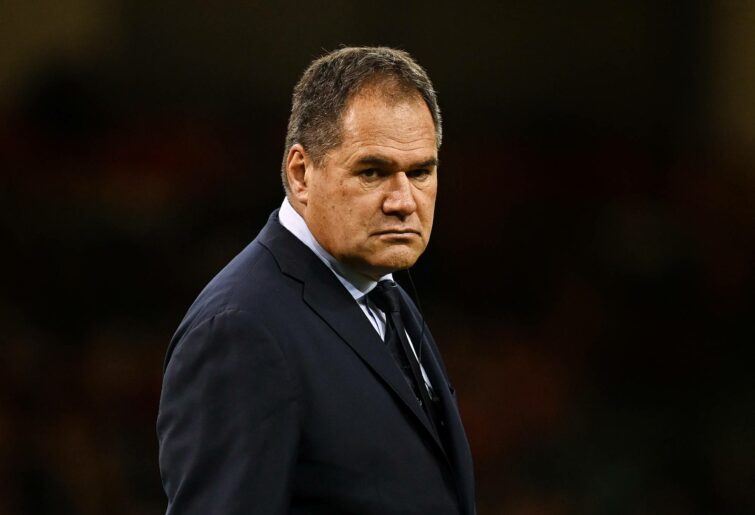
Dave Rennie (Photo by Harry Trump/Getty Images)
As early as 2021, Jones was sounded out for the position of Wallabies coach from 2024 onwards. When the RFU abruptly ended Jones tenure last month, and neglected to handcuff him for the remaining term of his contract, McLennan pounced on an opportunity to discuss with Jones the potential for bringing that appointment forward.
So far, so good. But in order to present the case to the rugby public for Jones as a lay-down misere, it was determined that Rennie first needed to be undermined.
Thus began a series of strategic whispers and barking dogs masquerading as news stories. Rennie was typecast as difficult; a stubborn man who wouldn’t listen; a limited coach whose win-loss record was untenable.
In truth, the charges against Rennie were spurious and disingenuous. His refusal to have Jones foisted upon him as a superior or co-coach was framed as obstinate and disrespectful, when Rennie saying “it’s not going to happen” was merely him telling a simple truth.
Neither he nor Jones, both head coaches, could reasonably be expected to work together. Even more so when the possibility had never been raised with Rennie, either as a courtesy, or in any serious, professional capacity.
Michael Cheika has talked about regretting, in retrospect, the oversight imposed upon him before he was sacked following the 2015 World Cup. While there were sound arguments for this at the time, the reality is that in these roles, it is the head coach’s way or the highway.
Also leaked was apparent disquiet around Rennie not taking the counsel of Rugby Australia’s rugby committee. Who would genuinely believe that in accepting the position, coach Rennie would have countenanced not only having to take the counsel of Phil Waugh and Dan Herbert, but to be seen to be acting on it, or else placing his job at risk?
The other side of that coin is to imagine Rennie implementing their advice and, after a Wallabies loss, Waugh and Herbert putting their hands up and accepting responsibility for what went wrong. It simply wouldn’t happen.
Much of the backgrounding against Rennie played out in ‘The Australian’; a publication which no longer offers regular rugby coverage; a commercial and political consequence of Fox Sports losing rugby’s broadcasting rights in 2020. This was accompanied by a sustained, co-ordinated attack by sections of the News Corporation media, on Rugby Australia and CEO Raelene Castle.
That Rugby Australia’s chairman would use this same media channel to sink his own coach, begins to tell us all we need to know about the values of the current organisation.
That Rennie was sacked over zoom only reinforces this. But there is more. ‘The Roar’ has learned that Rennie sought and received an assurance that no public statement about the change in coach would be released until after he was safely on a flight to New Zealand. Yet when he arrived at the Brisbane Airport lounge during the morning, Rennie found himself and Jones all over the television news, and having to deal with that attention.

Australian coach Eddie Jones (Photo by David Rogers/Getty Images)
Rennie might also have found curious the comments made by McLennan on a podcast the next day where, in pondering the potential outcomes from Jones’ appointment, he implored, “judge me at the end of my tenure.”
Whichever way you slice and dice that, it sounds very much like one rule for the chairman and another for the coach.
In his haste to trumpet Jones as “the world’s best coach” and Jones’ return as “the greatest comeback story ever”, McLennan went on to disparage Rennie, telling media; “I would rather we have somebody who’s really tough and we win World Cups, than we have a Kumbaya session, everyone holds hands and we fail.”
This thinly veiled swipe at Rennie’s approach to build deep cultural and personal bonds within the Wallabies group – with music as an important theme – is telling. Not only does it signal to players that the focus on key values such as selflessness, team first, and authentic connection with culture and family, is low-value mumbo jumbo, it is completely at odds with the approach adopted at all of Australia’s professional franchises.
At the elite level, the make-up of Australian rugby is increasingly Polynesian. It is critical that players from all ethnic backgrounds are bound together and, to their credit, all five franchises, the Wallaroos, and the Wallabies under Rennie, have worked hard to get this piece right.
Almost certainly, Jones understands this and will also get it right. The irony is the chairman, in his efforts to tap into what he describes as Jones’ “intense, slightly feral Australian characteristic”, demonstrating he doesn’t really understand how Australian rugby, in the elite playing environment in 2023, actually works.
It’s a theme McLennan repeatedly returned to. “Eddie instinctively understands the Australian way of playing rugby” said the chairman in another statement, without articulating what that this Australian-ness actually is.
Is it grand slam 1984 redux? None of Quade Cooper, Bernard Foley, Noah Lolesio and Ben Donaldson are Mark Ella. What about 1999, Australia’s most recent World Cup success? Darcy Swain, Cadeyrn Neville, Nick Frost, Will Skelton and Matt Philip are not John Eales.
Perhaps the true Australian way of playing rugby is another twenty years without a Bledisloe Cup? Let’s hope not.
One suspects McLennan was instead referencing Phil Kearns, immediately after scoring against the All Blacks at Athletic Park in 1990, ordering a pie with two sauce from Sean Fitzpatrick. And Jones, in the lead-up to a Test match, getting under the skin of his opposite, ending every preposition and veiled insult with a cheeky grin and the word “mate”.
McLennan himself has form in the same area, the manner of his recent spats with New Zealand administrators winning him no respect across the Tasman.
As far as objectives go, this falling in behind the boxing Kangaroo might be fair enough, but with the structural issues that impede Australian rugby – geographic imbalance, conflict between club and franchise rugby, intense competition for talent from other sports, lack of money – still in place, this sounds more like a return to the misty-eyed, romantic notion of plucking out a youngster kicking a ball around Coogee Oval and him turning into a world class flyhalf, than a robust strategy.
What of CEO, Andy Marinos? The Roar is aware that Rugby Australia’s most senior executive, and member of the rugby committee – remarkably – played no role in the appointment of Jones.
Typically, in the business world, the relationship between the CEO and Chairman is clearly defined. Whilst the chairman retains ultimate power, his role and responsibilities should never undermine the autonomy and authority of the CEO. Yet McLennan, keen to snare his man, determined that there would be no place for such niceties.
McLennan, the Rugby Australia board and executive management team deserve credit for arresting a precarious financial position. If that means McLennan adopting the same bludgeoning, bulldozing, micro-managing style as NRL chairman Peter V’Landys, the ongoing financial strength of the NRL, and the way V’Landys has gone about breaking down Victoria’s traditional stranglehold in spring racing, is evidence of effective, results-focused administration.
McLennan mirroring V’Landys is all the more ironic given McLennan and Jones launching a brazen, overt attack on current NRL players Cameron Murray, Joseph Sua’ali’i, Tolu Koula and Will Penisini.
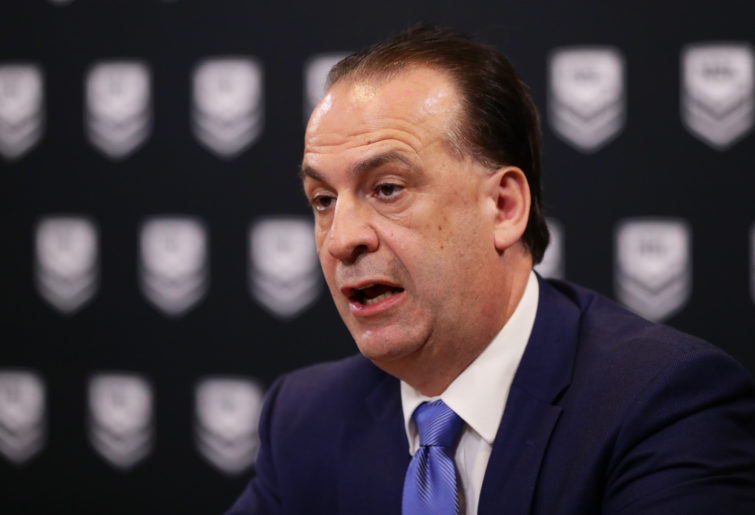
Peter V’landys (Photo by Matt King/Getty Images)
Again, do not think such a strategy comes without cost; not just the money required to entice elite league players to rugby, but in what this says about Rugby Australia’s values. Yes, there is the sugar hit that comes with rugby once again being atop the sports pages, and the prospect of seeing Sua’ali’i in a Wallabies jersey is one that should excite every fan.
But is Australian rugby building from within; identifying, nurturing and developing talent through its own pathways? Or is it a body that throws money at players wherever they may reside – Redfern Oval, Japan, France – and pulls them together once every four years?
McLennan thinks it can be both, and that Jones is the man to manage all of that. He spruiks Jones as the glue to reconnect grass roots and professional rugby. Jones is the man who will add a couple of zeros to Australian rugby’s looming private equity deal. And Jones has also been nominated as the person to oversee the Wallaroos program, including the appointment of coaches.
That all sounds like a lot of irons in the one fire. In a World Cup year where Jones’ counterparts will be fully focused on a single goal.
If there is one person who can handle all of that, Jones, whose work ethic is the stuff of legend, is that man. He will revel in the challenge and, as tough as it has been for Wallabies coaches in recent years (since Rod McQueen departed in 2001, no Wallabies coach, including Jones, has seen out his contract), the seven years he spent in the hot seat in England should prove priceless.
In time, Jones will face scrutiny over selection and coaching. For example, with an eye to Australia’s problematic flyhalf position, the question might reasonably be asked why Jones, as England coach, wasn’t able to figure out whether he wanted Marcus Smith or Owen Farrell as his playmaker?
For many, there is a sense that all of this will, one day, end in tears. But even if that is the case, and even if this exercise has shown Rugby Australia’s moral compass to be brittle, there is a greater sense that Jones has plenty to offer the Wallabies and Australian rugby, and that this is a cause worth getting behind.
Another undeniable positive is that Jones’ appointment puts an end to the tiresome and destabilising speculation about his future and the Wallabies’ coaching position.
Australian rugby being what it is, it will no doubt conjure up another reason to beat up on itself; find another impediment to the formation of a unified and cohesive approach to making the sport stronger. But that will be then.
Eddie is for now, and in Eddie, Australian rugby trusts.


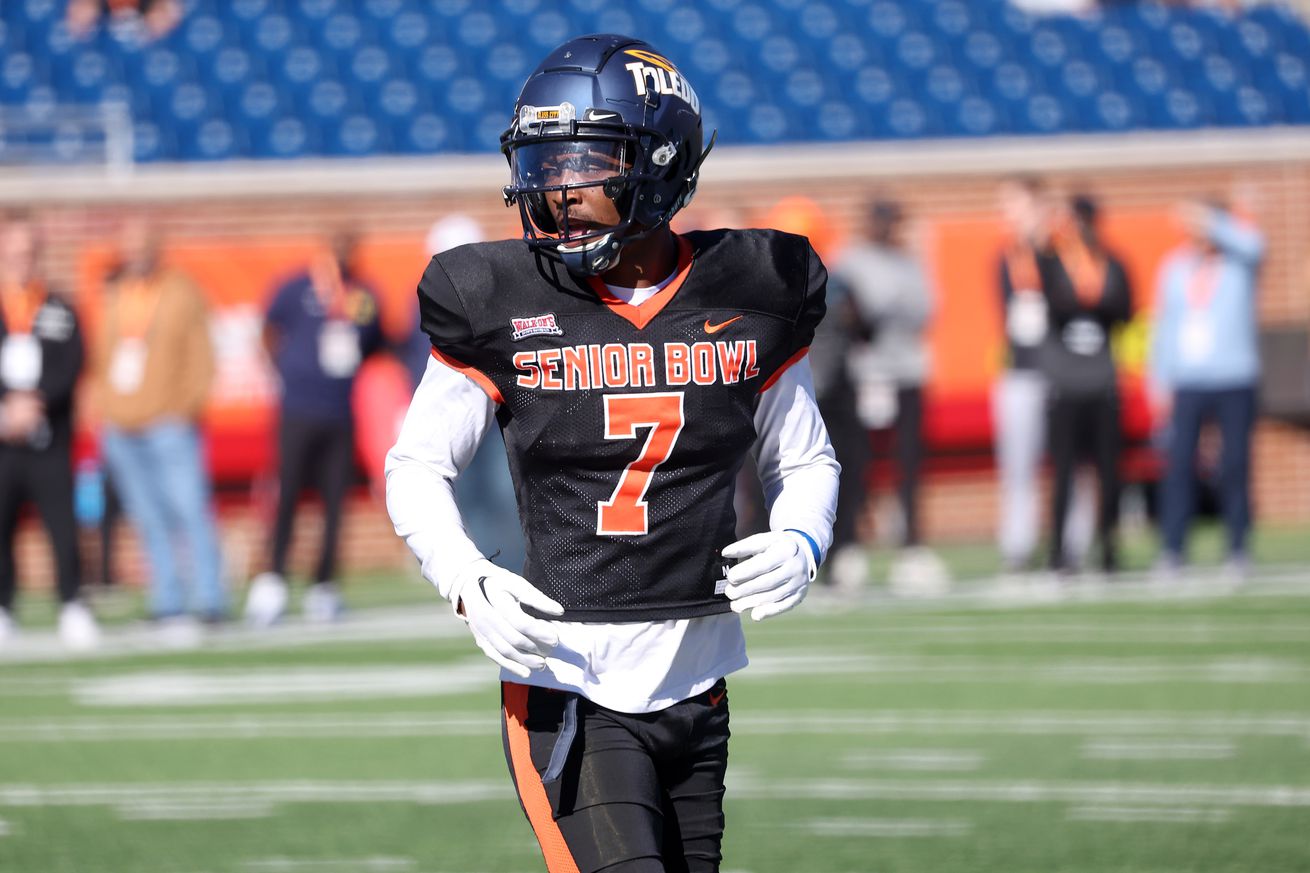
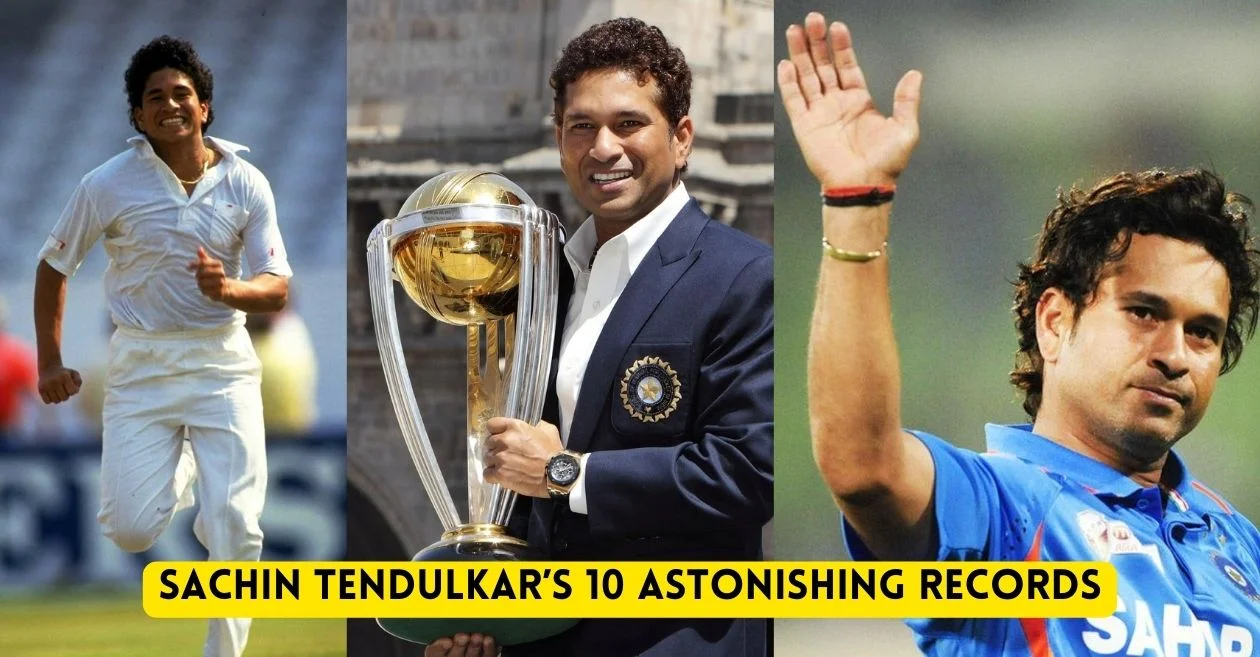


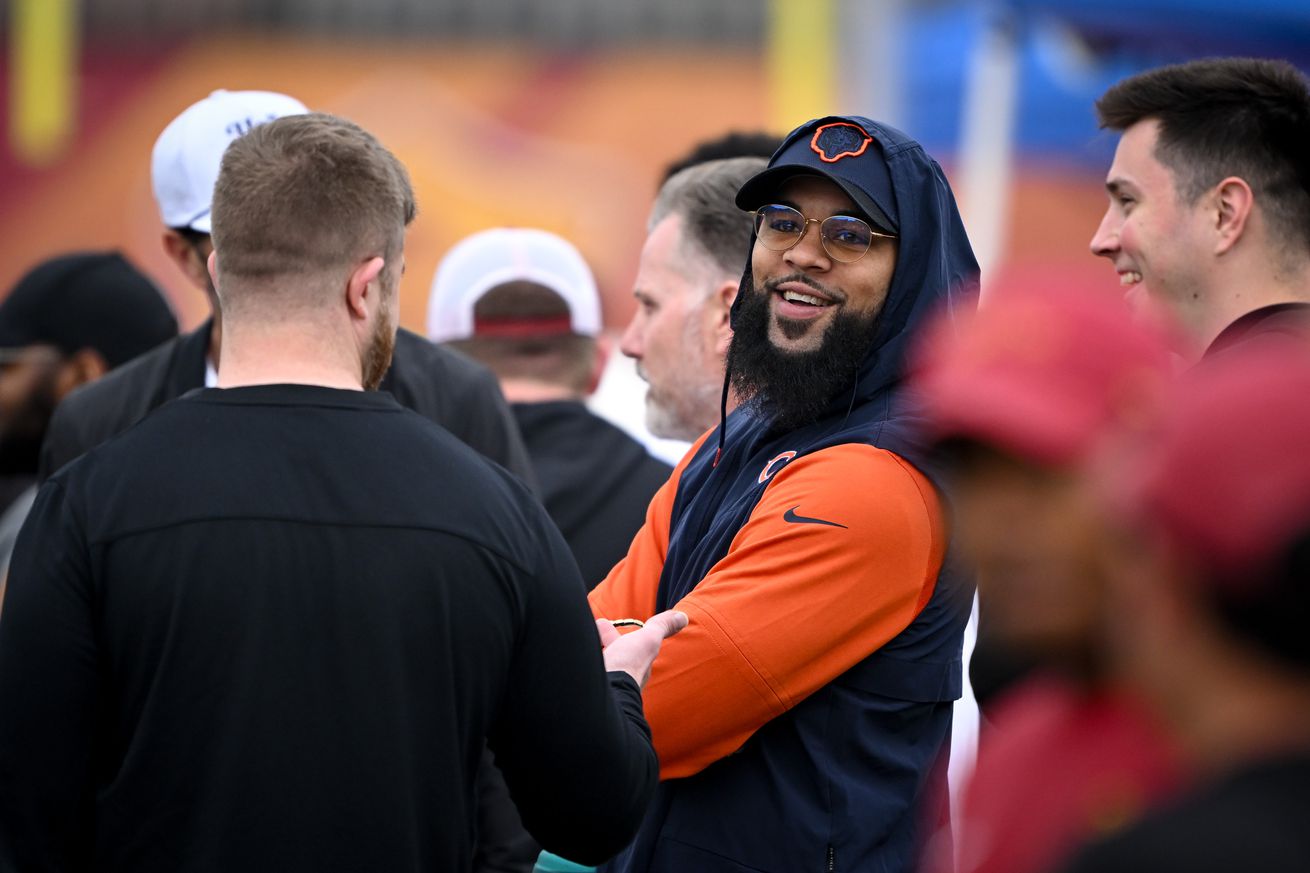











You must be logged in to post a comment Login